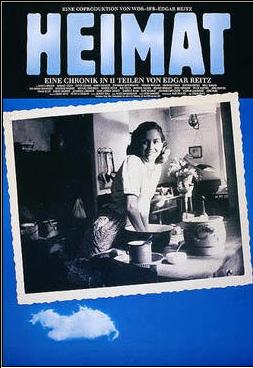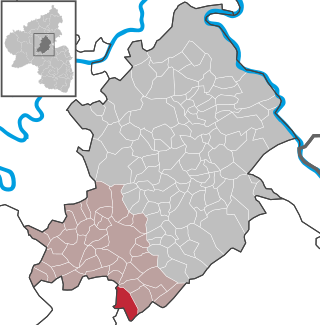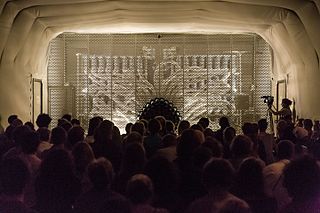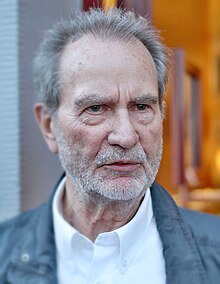Awards
Reitz received one of his first awards for his film Mahlzeiten which was awarded the prize for best debut work at the Venice Film Festival in 1967. In 1971 he founded Edgar Reitz Filmproduktion (ERF) in Munich. He now began to collaborate on films with his former academic colleague Alexander Kluge amongst them the 1974 fictitious documentary In Gefahr und größter Not bringt der Mittelweg den Tod. The lavish production costs of the 1979 film The Tailor of Ulm , which portrays the downfall of the aviation pioneer Albrecht Berblinger, caused Reitz's own financial circumstances to suffer. The film was entered into the 11th Moscow International Film Festival. [2] It was during this crisis that the idea for a film project about his homeland, the Hunsrück, first came to Reitz. What began as an attempt at self-discovery, ultimately broadened out into the Heimat trilogy (from 1984), which met with critical acclaim, an enthusiastic international audience, and numerous prizes. With this epic and monumental production, Reitz achieved a quite new perspective, an approach, both poetical and realistic, to the past of Germany as it might have played out in the provinces.
In 2004 Reitz was awarded the Carl Zuckmayer Medal by the state of Rhineland-Palatinate for his life's work. In the same year, he received the Master of Cinema Award of the International Filmfestival Mannheim-Heidelberg. Reitz is married to the singer and actress Salome Kammer (who appeared in Heimats 2 and 3) and lives in Munich.
He is an atheist. [3]

The Hunsrück is a long, triangular, pronounced upland in Rhineland-Palatinate, Germany. It is bounded by the valleys of the Moselle-Saar (north-to-west), the Nahe (south), and the Rhine (east). It is continued by the Taunus mountains, past the Rhine and by the Eifel past the Moselle. To the south of the Nahe is a lower, hilly country forming the near bulk of the Palatinate region and all of the, smaller, Saarland. Below its north-east corner is Koblenz.
New German Cinema is a period in German cinema which lasted from 1962 to 1982, in which a new generation of directors emerged who, working with low budgets, and influenced by the French New Wave and Italian Neorealism, gained notice by producing a number of "small" motion pictures that caught the attention of art house audiences. These filmmakers included Percy Adlon, Harun Farocki, Rainer Werner Fassbinder, Peter Fleischmann, Werner Herzog, Alexander Kluge, Ulli Lommel, Wolfgang Petersen, Volker Schlöndorff, Helma Sanders-Brahms, Werner Schroeter, Hans-Jürgen Syberberg, Margarethe von Trotta and Wim Wenders. As a result of the attention they garnered, they were able to create better-financed productions which were backed by the big US studios. However, most of these larger films were commercial failures and the movement was heavily dependent on subsidies. By 1977, 80% of a budget for a typical German film was ensured by a subsidy.

Alexander Kluge is a German author, philosopher, academic and film director.

Heimat is a series of films written and directed by Edgar Reitz about life in Germany from the 1840s to 2000 through the eyes of a family from the Hunsrück area of the Rhineland-Palatinate. The family's personal and domestic life is set against the backdrop of wider social and political events. The combined length of the 5 films — broken into 32 episodes — is 59 hours and 32 minutes, making it one of the longest series of feature-length films in cinema history.
Jean-Marie Straub and Danièle Huillet were a duo of French filmmakers who made two dozen films between 1963 and 2006. Their films are noted for their rigorous, intellectually stimulating style and radical, communist politics. While both were French, they worked mostly in Germany and Italy. From the Clouds to the Resistance (1979) and Sicilia! (1999) are among the duo's best regarded works.

Morbach is a municipality that belongs to no Verbandsgemeinde – a kind of collective municipality – in the Bernkastel-Wittlich district in Rhineland-Palatinate, Germany. It is also a state-recognized climatic resort (Luftkurort).
The Oberhausen Manifesto was a declaration by a group of 26 young German filmmakers at the International Short Film Festival Oberhausen, North Rhine-Westphalia on 28 February 1962. The manifesto was a call to arms to establish a "new German feature film". It was initiated by Haro Senft and among the signatories were the directors Alexander Kluge and Edgar Reitz. The manifesto was associated with the motto "Papas Kino ist tot", although this phrase does not appear in the manifesto itself.
'Beate Mainka-Jellinghaus' is a German film editor who was a member of the New German Cinema movement and is noted particularly for her many films with director Werner Herzog. Between 1966 and 1986, she was credited on more than twenty-five feature films and feature-length documentaries.

The International Short Film Festival Oberhausen, founded in 1954, is one of the oldest short film festivals in the world. Held in Oberhausen, it is one of the major international platforms for the short form. The festival holds an International Competition, a German Competition, an International Children's and Youth Film Competition, the MuVi Award for best German music video, and, since 2009, the NRW Competition for productions from the German state of North Rhine-Westphalia.

Woppenroth is an Ortsgemeinde – a municipality belonging to a Verbandsgemeinde, a kind of collective municipality – in the Rhein-Hunsrück-Kreis (district) in Rhineland-Palatinate, Germany. It belongs to the Verbandsgemeinde of Kirchberg, whose seat is in the like-named town.

Germany in Autumn is a 1978 West German anthology film about the period of 1977 known as the German Autumn, which was dominated by incidents of terrorism. The film is composed of contributions from different filmmakers, including Rainer Werner Fassbinder, Alexander Kluge, Edgar Reitz, Bernhard Sinkel, Alf Brustellin, Hans Peter Cloos, Katja Rupé, Peter Schubert and Volker Schlöndorff. It was entered into the 28th Berlin International Film Festival, where it won a Special Recognition award.
Marita Breuer is a German actress, known for her portrayal of Maria Simon born Wiegand in the Heimat series.

Gernot Roll was a German cinematographer, film director and script writer. He collaborated on several films with directors Edgar Reitz and Sönke Wortmann. He was regarded as an expert on literary adaptations and film biographies, such as The Buddenbrooks, filming Thomas Mann's novel in eleven television episodes directed by Franz Peter Wirth, and the same work again in 2008 in the film directed by Heinrich Breloer.

The Hof International Filmfestival is a German film festival that takes place in Hof, Bavaria, every year in October. Apart from numerous foreign productions, the main focus traditionally is on German films. During six festival days, about 130 films are shown in 8 theaters of 2 cinema centers, adding up to a total of 200 individual film presentations. With the exception of the retrospective, all films are German or world premieres.

Home from Home is a 2013 German drama film directed by Edgar Reitz. It was screened out of competition at the 70th Venice International Film Festival. It is shot in black and white, but there are some colour sequences. It is a prequel to the Heimat film series and concerns the Simon family living in the fictional Hunsrück village of Schabbach from 1840–1844.
The 29th annual Venice International Film Festival was held from 25 August to 7 September 1968.
In Danger and Deep Distress, the Middleway Spells Certain Death is a 1974 drama film directed by Alexander Kluge and Edgar Reitz. It is set in Frankfurt and tells the story of two women, one who sleeps with many men and steals their wallets, and one who is a spy for East Germany. The film mimics the style of documentaries, with actual documentary footage from the city as well as essayistic aspects.

Smeller is an installation by the Berlin-based artist Wolfgang Georgsdorf, which as an instrument and medium enables the composing and precise broadcasting or performance of complex scent sequences. These can also be synchronized with simultaneously reproduced sounds, films, narrative texts, dance or theatre.

Eight Hundred Times Lonely or 800 Times Lonely - One Day with German Filmmaker Edgar is a 2019 German documentary film directed by Anna Hepp about the German film director Edgar Reitz, who is known for his series of films called Heimat and was also a representative of the New German Cinema movement. Anna Hepp's film celebrated its world premiere at the 2019 Venice Film Festival in the Venice Classics section.
Ula Stöckl is a German feminist film maker and director, screenwriter and occasional actress.











